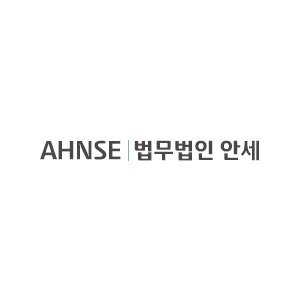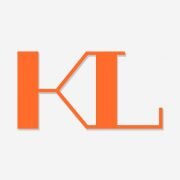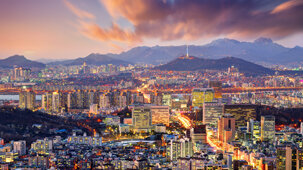Best Renewable & Alternative Energy Lawyers in Seoul
Share your needs with us, get contacted by law firms.
Free. Takes 2 min.
List of the best lawyers in Seoul, South Korea
About Renewable & Alternative Energy Law in Seoul, South Korea
Seoul, South Korea, is at the forefront of embracing renewable and alternative energy to combat climate change and achieve a sustainable future. The city and the national government have implemented a variety of policies and incentives to encourage the use of solar, wind, biomass, geothermal, and other clean energy sources. Legal frameworks have been designed to regulate not only the production and distribution of renewable energy but also to foster investment, innovation, and environmental protection. Navigating laws and regulations in this field involves understanding statutes related to utilities, real estate, intellectual property, emissions, and trade, as well as specific incentives available for green energy projects.
Why You May Need a Lawyer
Legal assistance can be vital for individuals and organizations involved in renewable and alternative energy in Seoul. Common scenarios where a lawyer can help include:
- Starting or investing in solar or wind energy projects
- Navigating renewable energy permits, licenses, and environmental regulations
- Understanding eligibility for government incentives, subsidies, or feed-in tariffs
- Negotiating contracts related to land use, power purchase, or technology licensing
- Dealing with issues involving the grid, such as connection and distribution rights
- Resolving disputes related to joint ventures, partnerships, or project delivery
- Dealing with intellectual property rights for clean technology patents or innovations
- Ensuring compliance with evolving local, national, and international energy standards
- Responding to changes in zoning or environmental impact assessments
- Handling matters regarding import, export, or trade of renewable energy equipment
Local Laws Overview
Renewable and alternative energy laws in Seoul are shaped both by South Korea's national policies and Seoul's municipal initiatives. Key aspects include:
- Renewable Portfolio Standards (RPS): Energy companies may be required to generate or source a certain percentage of electricity from renewables.
- Permits and Environmental Impact: Renewable projects must comply with national environmental assessments and obtain local building and operation permits.
- Subsidies and Incentives: Various national and city-level programs support solar panels, wind turbines, and energy storage solutions through financial incentives and tax breaks.
- Smart Grid and Feed-In Tariffs: Some programs guarantee the purchase of renewable energy at fixed rates to encourage investment.
- Zoning and Land Use: Laws regulate where renewable energy facilities can be constructed, which is critical for wind and solar farms within Seoul's city limits or outskirts.
- Intellectual Property: Protecting innovations and patents in renewable energy technology is governed by both national IP law and international treaties.
Because regulations frequently evolve and can differ depending on the size, location, and nature of the project, legal guidance is highly recommended for those wishing to navigate this complex landscape.
Frequently Asked Questions
What kinds of renewable energy are most common in Seoul?
Solar power is the most prevalent, especially through rooftop installations and building-integrated systems. Other sources like small-scale wind, geothermal, and waste-to-energy projects are also present.
Does South Korea offer incentives or subsidies for renewable energy?
Yes, both the national government and Seoul city provide subsidies, grants, and tax incentives to promote the use of renewable energy, with specifics depending on the technology and scale of the project.
What permits are needed to install solar panels in Seoul?
Installations require building permits from local authorities and may need additional approvals to connect to the electrical grid. Environmental impact assessments may be required for large projects.
How are renewable energy projects financed in Seoul?
Projects are typically financed through a combination of private investment, government grants, green loans, and, in some cases, public-private partnerships. Some feed-in tariff policies help secure revenue streams.
Is it possible for foreign companies to invest in Seoul's renewable energy sector?
Yes, foreign entities can invest, but there may be restrictions or specific regulatory requirements. Legal advice is essential to navigate company formation, joint ventures, and compliance issues.
What challenges commonly arise with renewable projects in Seoul?
Challenges include issues with land use, dealing with fluctuating policies, uncertain grid access, regulatory compliance, and managing local community relations.
Are startups and innovators in renewable energy protected under Korean law?
Yes, Korean intellectual property laws protect patents, utility models, and trade secrets, including those developed in the renewable energy field.
How are disputes involving renewable energy projects resolved?
Disputes can be resolved through negotiation, mediation, arbitration, or court proceedings. Many contracts include dispute resolution mechanisms to manage conflicts more efficiently.
What happens if a renewable energy project does not meet environmental regulations?
Non-compliance can lead to fines, orders to halt construction or operation, mandatory remediation, or even criminal prosecution in severe cases.
How can a lawyer assist with renewable energy projects in Seoul?
A lawyer can help with contract drafting, regulatory compliance, due diligence, dispute resolution, and ensuring you take full advantage of available incentives while mitigating risk.
Additional Resources
If you are seeking guidance in renewable and alternative energy law in Seoul, consider consulting the following resources:
- Ministry of Trade, Industry and Energy (MOTIE) - Oversees energy policy, incentives, and regulations
- Korea Energy Agency (KEA) - Provides detailed guidelines on permits, subsidies, and support for renewable projects
- Seoul Metropolitan Government (SMG) - Runs local initiatives and can provide information on urban renewable programs
- Korea Intellectual Property Office (KIPO) - For protection and filing of intellectual property related to clean technology
- Local chamber of commerce and business incubators for renewable energy startups
- Environmental law and energy law sections of the Korean Bar Association
Next Steps
If you require legal assistance for renewable or alternative energy matters in Seoul, consider the following steps:
- Define your goals and gather all documents related to your renewable energy project or issue.
- Identify lawyers or firms specializing in energy law, environmental law, or business law in Seoul.
- Schedule consultations to discuss your needs, assess experience, and understand their proposed approach and fee structures.
- Be ready to provide details about your project, including size, location, technology, investment, and timeline.
- Ask about experience with similar projects, local permits, and regulatory processes.
- Engage a lawyer to guide you through compliance, negotiations, permitting, and, if necessary, dispute resolution.
- Stay up to date with changing laws and incentives, ideally through regular communication with your legal advisor.
With thorough preparation and the right legal expertise, you can navigate the renewable and alternative energy landscape in Seoul efficiently and effectively.
Lawzana helps you find the best lawyers and law firms in Seoul through a curated and pre-screened list of qualified legal professionals. Our platform offers rankings and detailed profiles of attorneys and law firms, allowing you to compare based on practice areas, including Renewable & Alternative Energy, experience, and client feedback.
Each profile includes a description of the firm's areas of practice, client reviews, team members and partners, year of establishment, spoken languages, office locations, contact information, social media presence, and any published articles or resources. Most firms on our platform speak English and are experienced in both local and international legal matters.
Get a quote from top-rated law firms in Seoul, South Korea — quickly, securely, and without unnecessary hassle.
Disclaimer:
The information provided on this page is for general informational purposes only and does not constitute legal advice. While we strive to ensure the accuracy and relevance of the content, legal information may change over time, and interpretations of the law can vary. You should always consult with a qualified legal professional for advice specific to your situation.
We disclaim all liability for actions taken or not taken based on the content of this page. If you believe any information is incorrect or outdated, please contact us, and we will review and update it where appropriate.















